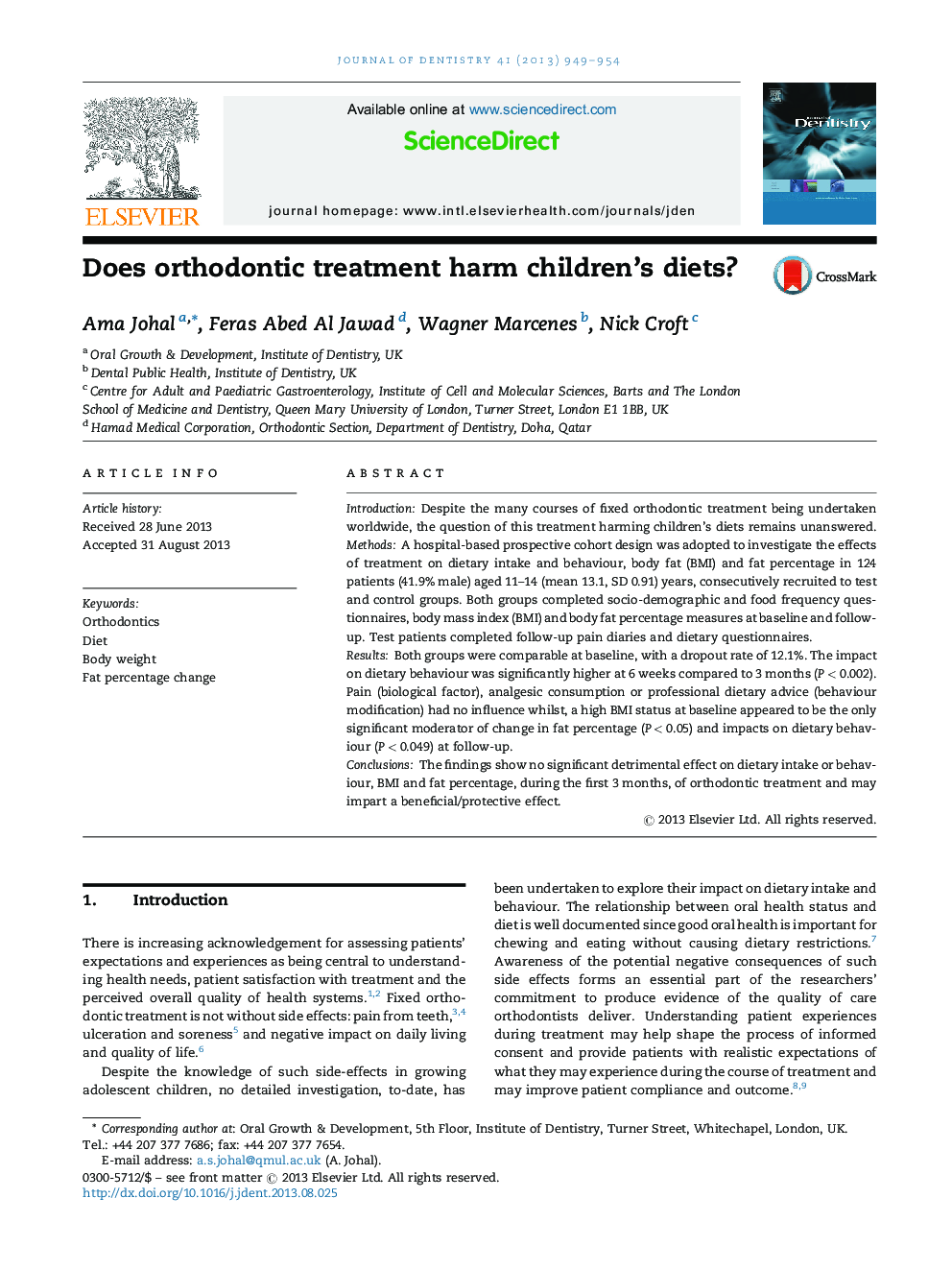| Article ID | Journal | Published Year | Pages | File Type |
|---|---|---|---|---|
| 6053150 | Journal of Dentistry | 2013 | 6 Pages |
IntroductionDespite the many courses of fixed orthodontic treatment being undertaken worldwide, the question of this treatment harming children's diets remains unanswered.MethodsA hospital-based prospective cohort design was adopted to investigate the effects of treatment on dietary intake and behaviour, body fat (BMI) and fat percentage in 124 patients (41.9% male) aged 11-14 (mean 13.1, SD 0.91) years, consecutively recruited to test and control groups. Both groups completed socio-demographic and food frequency questionnaires, body mass index (BMI) and body fat percentage measures at baseline and follow-up. Test patients completed follow-up pain diaries and dietary questionnaires.ResultsBoth groups were comparable at baseline, with a dropout rate of 12.1%. The impact on dietary behaviour was significantly higher at 6 weeks compared to 3 months (PÂ <Â 0.002). Pain (biological factor), analgesic consumption or professional dietary advice (behaviour modification) had no influence whilst, a high BMI status at baseline appeared to be the only significant moderator of change in fat percentage (PÂ <Â 0.05) and impacts on dietary behaviour (PÂ <Â 0.049) at follow-up.ConclusionsThe findings show no significant detrimental effect on dietary intake or behaviour, BMI and fat percentage, during the first 3 months, of orthodontic treatment and may impart a beneficial/protective effect.
